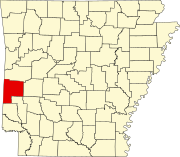
Hoxie is a city in Lawrence County, Arkansas, United States. It lies immediately south of Walnut Ridge. The population was 2,780 at the 2010 census.

Joseph William Martin Jr. was an American Republican politician who served as the 44th speaker of the United States House of Representatives from 1947 to 1949 and 1953 to 1955. He represented a House district centered on his hometown of North Attleborough, Massachusetts, from 1925 to 1967 and was the leader of House Republicans from 1939 until 1959, when he was ousted from leadership after the party's disastrous losses in the 1958 elections. He was the only Republican to serve as Speaker in a sixty-four year period from 1931 to 1995. He was a "compassionate conservative" who opposed the New Deal and supported the conservative coalition of Republicans and southern Democrats.

Winthrop Rockefeller was an American politician and philanthropist. Rockefeller was the fourth son and fifth child of American financier John D. Rockefeller Jr. and Abby Aldrich Rockefeller. He is one of the grandchildren of Standard Oil co-founder John D. Rockefeller. As an entrepreneur in Arkansas, he financed many local projects, including a number of new medical clinics in poorer areas, before being elected state governor in 1966, as the first Republican governor of Arkansas since Reconstruction. Despite accusations of lacking insight into the concerns of low-income voters, Rockefeller was re-elected in 1968, and went on to complete the controversial integration of Arkansas schools.
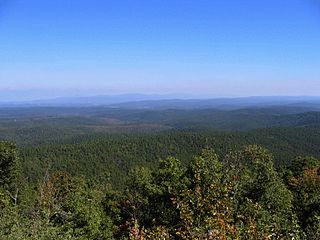
The Ouachita National Forest is a vast congressionally-designated National Forest that lies in the western portion of Arkansas and portions of extreme-eastern Oklahoma, USA.
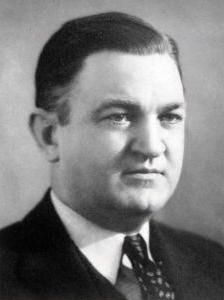
Carl Edward Bailey was an American attorney and the 31st governor of Arkansas from 1937 to 1941.

Harvey Parnell was an American farmer and politician from Southeast Arkansas. Parnell served in the Arkansas General Assembly for eight years, first in the Arkansas House of Representatives, and later serving a term in the Arkansas Senate. Following the re-establishment of the lieutenant governor position, Parnell won the statewide election and served under Governor John Martineau. When Martineau resigned to take a federal judgeship in March 1928, Parnell was elevated to become the state's 29th governor, a position he would hold until 1933. Early in his time as governor, Parnell was responsible for Progressive reforms popular with rural voters, including expansion and modernization of the highway system and public school reform. But as the Dust Bowl and Great Depression ravaged the Arkansas economy, Parnell's programs were blamed for bankrupting the state, and his popularity plummeted. He left politics after his second full gubernatorial term ended in January 1933.
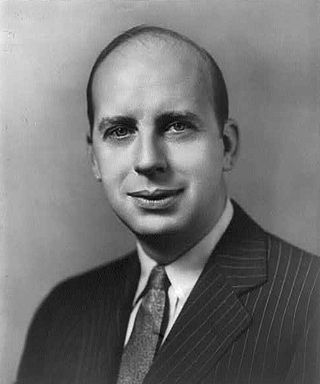
Herbert Brownell Jr. was an American lawyer and Republican politician. From 1953 to 1957, he served as United States Attorney General in the administration of President Dwight D. Eisenhower.
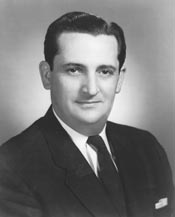
Thomas Dale Alford, Sr. was an American ophthalmologist and politician from the U.S. state of Arkansas who served as a conservative Democrat in the United States House of Representatives from Little Rock from 1959 to 1963.
Ronald Norwood Davies was a United States district judge of the United States District Court for the District of North Dakota. He is best known for his role in the Little Rock Integration Crisis in the fall of 1957. Davies ordered the desegregation of the previously all-white Little Rock Central High.
Caddo Gap is an unincorporated community and census-designated place (CDP) in Montgomery County, Arkansas, United States. It lies between Glenwood and Norman, on the Caddo River. It was first listed as a CDP in the 2020 census with a population of 39.

The Republican Party of Arkansas (RPA), headquartered at 1201 West 6th Street in downtown Little Rock, is the affiliate of the Republican Party in Arkansas. It is currently the dominant party in the state, controlling all four of Arkansas' U.S. House seats, both U.S. Senate seats, all statewide executive offices, including the governorship, and supermajorities in both houses of the state legislature.
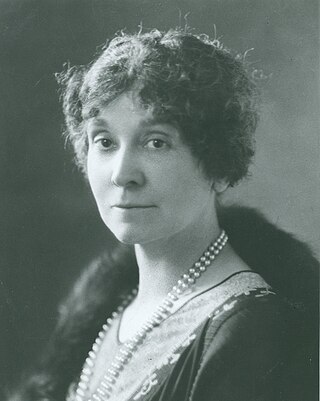
Effiegene Wingo was a U.S. Representative from Arkansas, wife of Otis Theodore Wingo and great-great-great-granddaughter of Matthew Locke.

Otis Theodore Wingo was an American lawyer and politician who served as a U.S. representative from Arkansas's 4th congressional district from 1913 to 1930. He was the husband of his successor in office, Effiegene Wingo.
Archibald K. Gardner was a United States circuit judge of the United States Court of Appeals for the Eighth Circuit.
Garnett Thomas Eisele,, better known as G. Thomas Eisele, was a United States district judge of the United States District Court for the Eastern District of Arkansas.
Jesse Smith Henley was a United States circuit judge of the United States Court of Appeals for the Eighth Circuit and previously was a United States district judge of the United States District Court for the Eastern District of Arkansas and the United States District Court for the Western District of Arkansas.
Harry Jacob Lemley was a United States district judge of the United States District Court for the Eastern District of Arkansas and the United States District Court for the Western District of Arkansas.
Hoxie School District is a public school district based in Hoxie, Arkansas, United States. The Hoxie School District encompasses 124.17 square miles (321.6 km2) of land including all or portions of Lawrence County communities including Hoxie, small portions of Walnut Ridge, Sedgwick, and Minturn.
Osro Cobb was a Republican lawyer who worked to establish a two-party system in the US state of Arkansas. In 1926, he was elected to the Arkansas House of Representatives from Montgomery County and served as the only Republican member in the chamber for two two-year terms. He was the United States attorney for the United States District Court for the Eastern District of Arkansas during the Little Rock Crisis of 1957–1958. He served a year on the Arkansas Supreme Court in 1966 as a temporary appointee of Democratic Governor Orval Faubus.
Drew Bowers was the Republican nominee for governor of Arkansas in 1926 and 1928.


